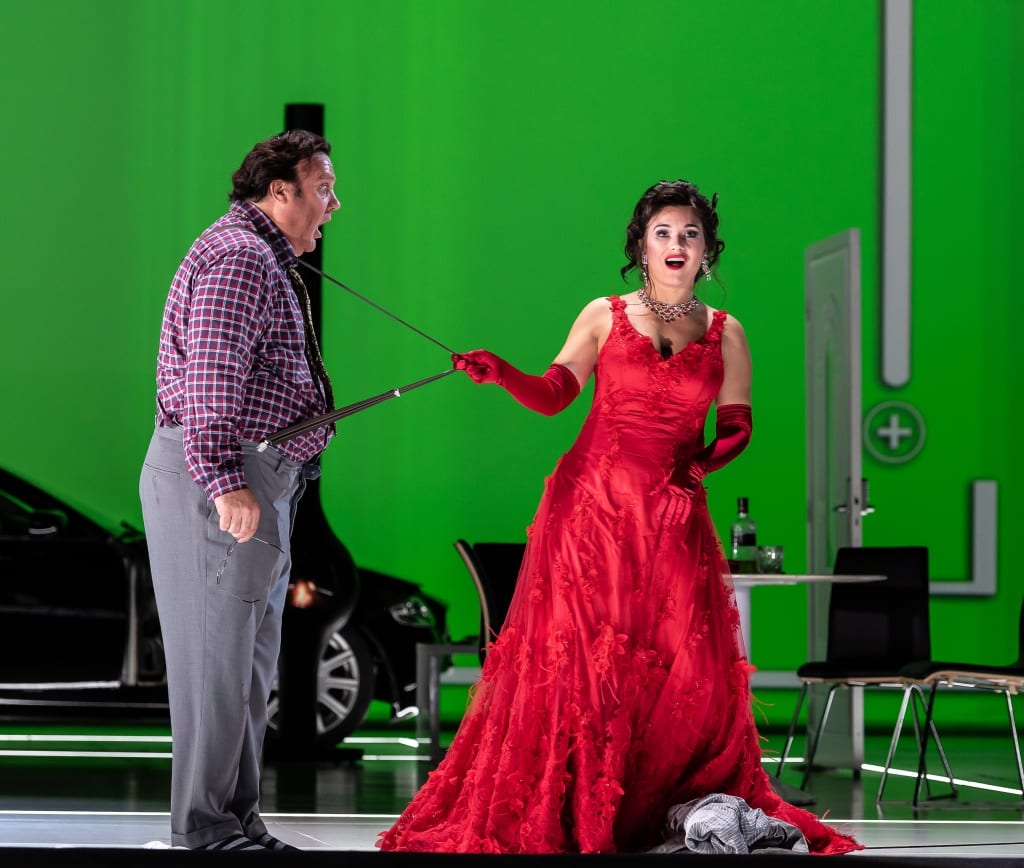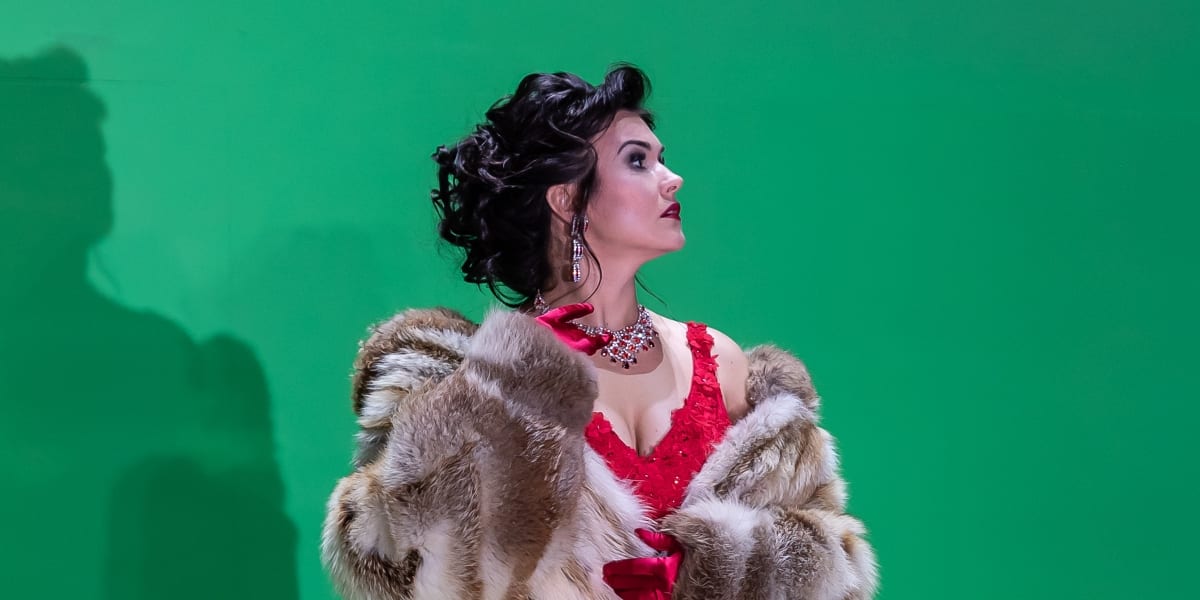Teetering between cruelty and comedy, director Damiano Michieletto brings a new production of Don Pasquale to the ROH, after its successful runs in Paris and Palermo respectively. A tale of collective deceit, the plot centres around aged bachelor, Don Pasquale (Bryn Terfel), winning the hand of impoverished widow, Norina (Olga Peretyatko). Though, he isn’t the only one who yearns for her. A tug of war between uncle, nephew and doctor-turned-confidant saturates the work’s central conceit — deception. The last of Donizetti’s comic operas, written in 1842, its sentiment perhaps suggests otherwise — cynicism never falls too far behind. With the orchestra of the ROH under the masterful baton of Evelino Pidò, the evening was underscored by Donizetti’s beguiling overture.
Marking her Royal Opera debut, soprano Olga Peretyatko captures the character of the wily, seductive Norina. Vocally beguiling, Peretyatko is careful and controlled when tackling the demanding writing of Donizetti. Her graceful shifts from the most delicate pianissimi to the audacious forte outbursts elucidate the demeanour of her character most tactfully. However, Bryn Terfel’s performance of the title role was surely the night’s most impressive facet. Projection is not a difficult task for the Welsh bass, though apparently nor were the crafting of phrases; particularly certain ridiculously syllabic lines. Perhaps the most poignant scene of the work was where the two protagonists bicker, triggering Norina to slap Don Pasquale. From seething and jealous to vulnerable and hurt, Terfel’s acting serves as a tonic, adding a further dimension to his role.

Self-pitying, bratty but ultimately desperate for any sort of validation, the role of Ernesto is captured perfectly by countertenor, Ioan Hotea. Certain moments offered thoughtful delivery, with the duet ‘sogno soave e casto’ serving as a charming highlight. Marcus Werba as Doctor Malatesta captured the assertive demands of the role both as an actor and baritone. An accomplice to the demise of Don Pasquale, Malatesta’s scheming nature was illuminated most wickedly through the charged vocal lines he projected.
Encapsulating the work in an effectively refreshing, though stark set, designer Paolo Fantin incorporated contemporary concepts into the 19th-century farce. With striking scenes featuring blaring L.E.D lights, pseudo-Hollywood green-screens; complete with video projections and a handful of knitted puppets, Fantin’s work subverted any audience premonitions of tradition – a refreshing perspective. Aesthetic characterisation can be attributed to the clothing designer Agostino Cavalca; whose work ranged from the glitz of sequined bodycon dresses to the frumpiness of a worn out dressing gown. The wedding together of both material culture and 21st century technology made Michieletto’s production one to resonate with a contemporary audience.

